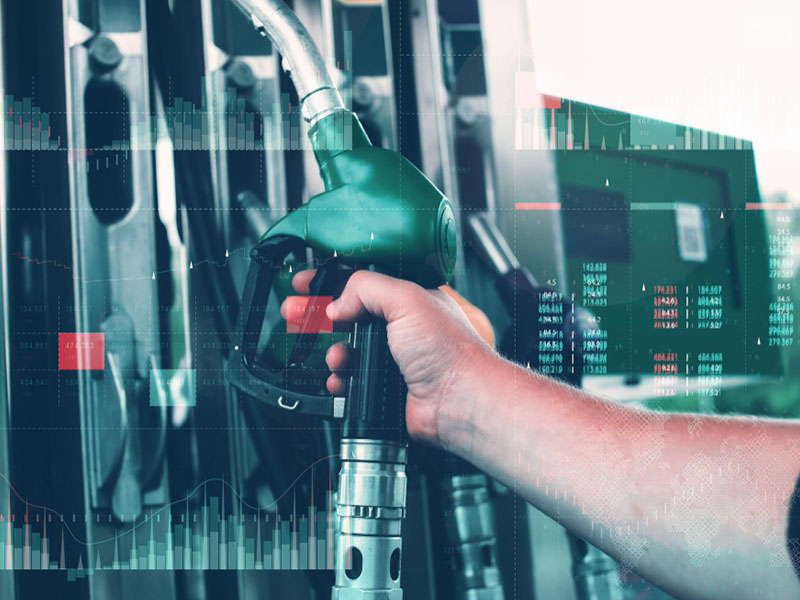Fuel Management Systems UAE: Working and Benefits for Fleet

Fuel is one of the most important and costly resources for businesses that run vehicles every day. Without proper monitoring, it’s easy to waste fuel or lose it to theft. That’s why fuel management systems are now used in many industries. However, they help track, control, and save fuel through smart tools and technology. In this blog, we will explain how these systems work and the key benefits they bring to your fleet.
How Fuel Management Systems Work
Fuel Level Monitoring
Fuel management systems utilize sensors that are smart to monitor every vehicle’s fuel levels. The sensors provide the program with constant fuel level estimations. The software immediately alerts the management of an unexpected drop in fuel. In addition, it helps detect theft and fuel leaks. Thus, you can protect your fuel from unanticipated loss.
Real-Time Tracking
The GPS tracking software connection allows the system to display the current location of your automobiles. Based on driving duration, speed, and location, it monitors fuel use. Fuel waste from extended idling or delays on the route is immediately detectable. However, you are able to make rapid and informed judgments thanks to this real-time data. Ultimately, it enhances the overall performance of your fleet.
Reports & Analytics
Information about fuel is gathered and transformed into useful charts and reports. These statistics display the amount of gasoline used by a trip, car, or driver. Data can be compared over time to identify fuel waste. This information can help you make better timetables and routes. The main benefit is that it lowers total gasoline costs.
Alerts & Notifications
For any incident involving fuel, the system instantly sends out notifications. When there is an unexpected decline in fuel or unusual consumption, you are alerted. You can take quick action and prevent issues before they worsen due to these warnings. Reminders for auto maintenance can also be established. This maintains the safety and efficiency of your fleet.
Integration with GPS
GPS tracking improves fuel management even further. To monitor fuel use, the system looks at idle time, vehicle speed, and route information. Additionally, you can guarantee that drivers adhere to designated routes. This integration improves route efficiency and prevents fuel waste. It also gives your operations an additional degree of control.
Improved Efficiency
Fuel management systems improve vehicle behaviour control. They help in better route planning, avoiding pointless excursions, and reducing fuel waste. As drivers grow more conscious of their fuel use, they develop better habits. In general, it increases the productivity of your fleet, reduces fuel expenses, and saves time. Big effects come from every little save.
Benefits of Fuel Management Systems
1. Improved Fuel Efficiency
Fuel management systems provide you with information about where and how fuel is used. You can improve driving habits, steer clear of fuel-intensive routes, and reduce extended idle time using this data. Over time, the fuel savings from these minor adjustments add up. Consequently, your company reduces wasteful fuel expenses. It’s a wise move that will increase efficiency.
2. Real-Time Monitoring
Each fueling activity can be observed in real time. The technology informs you on everything from checking current levels of your fuel to identifying sudden decreases. The real-time information allows you to remain in control and react swiftly. Furthermore, it lowers the chance of fuel theft or misuse. More intelligent and faster judgments are due to real-time data
3. Fuel Theft Prevention
If the fuel level drops abnormally, the system alerts users. The system will notify users immediately when someone tries to use fuel. You can stop theft before it happens and safeguard your possessions by using these alerts. It’s harder to detect theft with improved fuel tracking. It saves money while also increasing security for your fleet.
4. Automate Fuel Reports
Manual record-keeping is prone to mistakes and can be time-consuming. Reports are automatically generated by fuel management systems, and also it can also save your time. These are clear and factual reports. It only takes a few clicks to evaluate fuel use on a daily, weekly, or monthly basis. It greatly speeds up and simplifies fleet management.
5. Improve Driver Behavior
The amount of fuel your fleet uses is greatly influenced by its drivers. Driving habits, including excessive braking, idling, and speeding, are monitored by the system. Drivers can be trained and guided to perform better with the use of this data. This eventually results in safer and more fuel-efficient driving. Using GPS tracking software also prolongs the life of the car and reduces maintenance expenses.
Read Further: how fuel monitor flotilla fleet GPS tracking system work
Enhancing Operational Control and Compliance
1. Streamlines Fuel Inventory Management
Fuel management systems provide real-time visibility into fuel inventory levels across all storage locations. Thus, fleet managers may monitor gasoline use patterns, plan for timely refuelling, and prevent stockouts or overstocking. Additionally, keeping optimal fuel levels lowers carrying costs and ensures uninterrupted operations for businesses.
2. Facilitates Regulatory Compliance
A precise and automated tracking of fuel helps you comply with environmental and safety regulations. Fuel management systems produce specific information regarding the use of fuel, the storage environment, its contaminants, and other conditions, which can be readily provided to regulatory authorities. But this also assures compliance and lowers the chance of legal and penal penalties.
3. Enhances Data Security and Access Control
Contemporary fuel management solutions include strong security measures, like user authentication and access restrictions, to safeguard important information. Because only authorized personnel can access information about fuel and perform transactions, there is a lower risk of data breaches as well as illegal fuel consumption. This management level protects the company’s assets and data integrity.
4. Supports Strategic Decision-Making
By analysing large amounts of fuel data, businesses may identify trends, forecast future fuel needs, and make well-informed decisions on fleet expansion or reduction. Because of this strategic knowledge, companies can invest in fuel-efficient equipment, optimize routes, and allocate resources more effectively, all of which improve operations over time.
5. Promotes Environmental Sustainability
Effective fuel management comes with two benefits: it lowers the use of fuel and greenhouse gas emissions of greenhouse gases. Businesses can reduce their environmental impact and show their commitment they have to sustainable development by regulating and monitoring their consumption of fuel. This not only benefits the environment, but it also improves the reputation of the company with customers and others who care about the environment.
Final Thoughts
For any business that has numerous vehicles, fuel management software is an excellent investment. They protect your fuel supply, help reduce expenses, and boost the efficiency of the fleet. A successful fuel control system is possible due to live data, accurate reports, and powerful warnings. Moreover, the time to install a fuel management system in your fleet is now if you want to increase efficiency and cut expenses. If you are running a vehicle business and want to install the best fuel management system, then Flotilla is the best GPS tracking software to update you and enhance your business operation.


